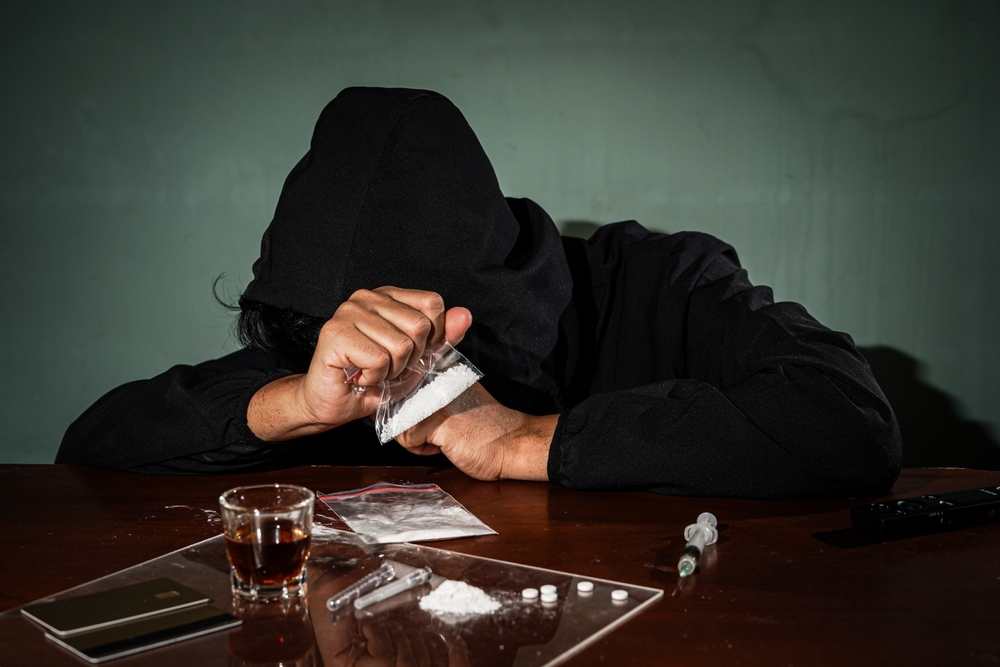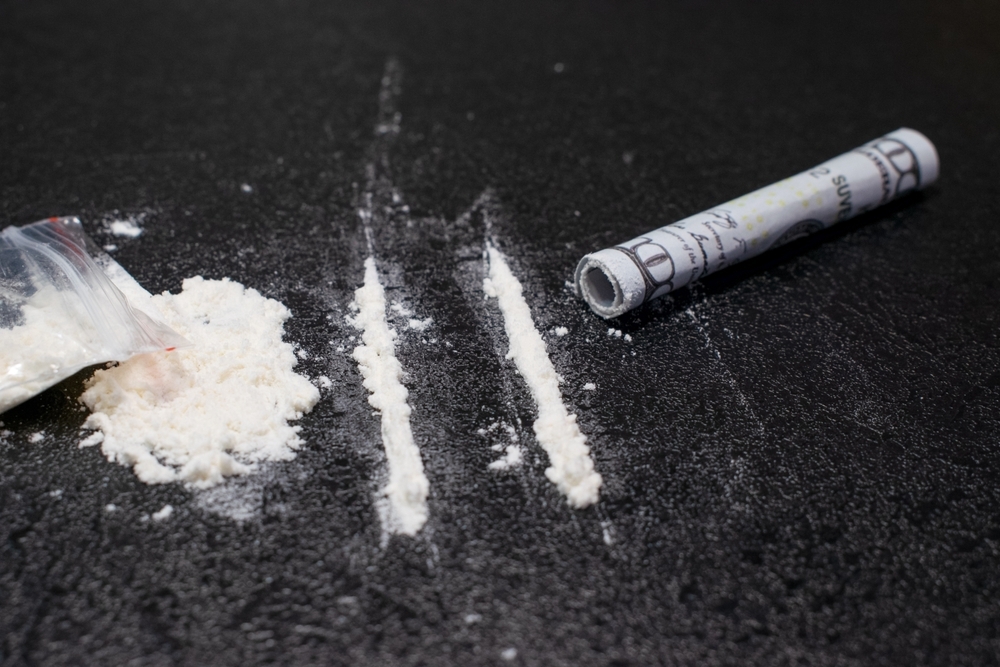Last Updated:
February 11th, 2025
Some people explain addiction as living with rose-tinted glasses.This means that we can have a somewhat distorted view of what is happening around us. Addiction is infamously linked with this kind of cognitive distortion. This leaves us feeling that drugs are not the problem. We might believe that the drugs are helping us rather than harming us.
This is why an addiction to cocaine is so insidious. How do we accept that we need help when cocaine feels like our life jacket? Even when it feels like cocaine is what is keeping us afloat, it couldn’t be further from the truth. We feel like we need cocaine because we are reliant on it. Not because it is good for us. To counteract this, it can be useful to debunk the perceived benefits of cocaine. This includes analysing the actual risks associated with the drug, including its potent threat to our physical and mental health.
Why do I feel like I need cocaine?
Overuse of any addictive substance can lead to addiction. And in addiction, we get to the stage of having ‘unreliable self-control,’ around drugs. This is linked to changes in thoughts and behaviours that can be associated with functional shifts in the brain.
Treatment stats
If you feel like you need cocaine, then you are not alone. Treatment entry for cocaine use is increasing in England. Between March of 2022 and April of 2023, 23,529 people in England started treatment for cocaine addiction. This is 10% more than the year before, where 21,298 people started cocaine treatment.
There has also been an increase in the number of people seeking help for crack cocaine use in this period, increasing from 4,711 to 5,444.
But what is it that makes cocaine desirable to so many?
Perceived benefits of cocaine
A lot of users feel that cocaine adds a lot of value to their lives. This could manifest in different ways, such as feeling that:
- ‘it makes me feel more confident’
- ‘it makes me more sociable’
- ‘it helps me manage anxiety’
- ‘it improves my mood’
- ‘it makes me feel more spontaneous’
- ‘it makes me feel excited’
- ‘it boosts my sex drive’
- ‘it makes me feel more awake’
- ‘it helps me manage stress’
- ‘it makes me feel like a better version of myself’
Cocaine is a stimulant. This means that its precise mechanism of action is to increase the activity in certain areas of our brain. This catalyses these feelings of euphoria, and confidence. For a lot of people, these feelings almost act as a boost. It can feel like we have a sudden surge of bravado, making us feel like a better version of ourselves.
In reality, though, these side-effects are very artificial. They are short-lived, associated with health risks, and can cause us to get into difficult or dangerous situations. Becoming reliant on the version of ourselves that we become after using drugs is very risky. It can lead to a fracturing of our sense of self as well as a whole host of health and social complications.
The psychology of drug addiction
Cocaine is a Class A drug. This classification indicates two key things:
- It has a very high addiction potential
- It can be associated with severe dangers
The higher the class of a drug, the more the penalties associated with it increase. This is intended to model more significant consequences for the riskier substances. That means that cocaine is one of the most dangerous drugs available on the market.
But why is it so dangerous?
We can explain this from neurological as well as psychological perspectives.
Changes in brain structure
Studies have shown that chronic cocaine use can lead to structural changes in our brains. This means that the physical shape and size of different parts of our brains are affected. Perhaps the most concerning anatomical change is the reduction in grey matter. The grey matter is special tissue in our brains that is linked with essential mental functions.
This material ‘plays the most significant part in allowing humans to function normally daily.’ Without it, our usual cognitive activities can be impaired. A reduction in grey matter has been linked to degenerative conditions such as Parkinson’s, for example.
Cocaine literally changes the way our brains work, altering our decision making and impulse control abilities. This in turn reinforces the cycle of addiction.
Influencing reward systems
The cycle of addiction is most associated with the reward systems in our brains. When stimulants like cocaine enter our nervous system, they interact with specific receptors. This interaction can alter the functioning of key neurotransmitters, like dopamine and serotonin. When cocaine molecules bind with these sites, they make us feel a sense of pleasure. But most importantly, it stimulates the reward centre in our brain. This acts to condition us into associating cocaine with pleasure.
Cognitive distortions
Cocaine addiction can warp our sense of reality. It can lead us to thinking in ways that do not accurately reflect the situation. For example, we can minimise the impact cocaine has on our lives. This can look like avoidance and refusal to accept we have a problem. [9] It can also lead to conflict and clashes with those around you who challenge you on your cocaine use.
The reality of cocaine abuse
We can see that there are several different mechanisms that can effectively make us feel that we need cocaine. Whilst these effects are very real, the suggestion that cocaine benefits us in some way is very inaccurate. In direct contrast, cocaine tangibly causes us harm in three key areas:
- Our psychology
- Our bodies
- Our social lives
Psychological effects
- Depression
- Irritability
- Aggression
- Paranoia
- Hallucinations
- Delusions
- Suicidal thoughts
- Cognitive impairment
- Memory issues
- Violent thoughts
Physical effects
- Damage to nose and sinuses
- Respiratory issues
- Muscle wasting
- Heart attacks
- Hypertension
- Seizures
- Coma
- Stroke
- Difficulty sleeping
- Increased risk of cancer
- Gurning
- Stomach issues
Social effects
- Violence
- Relationship strain
- Social isolation
- Engagement with crime
- Financial difficulties
- Issues at work
- Issues at school
Together, these symptoms can be life-limiting. In some cases, they can even be life-threatening.
Recognising harm and breaking the cycle
Whilst it can feel convincing at times, we do not need cocaine to function.
It is the nature of addiction to make us believe that we need something that is actively causing us harm. Substance abuse may feel like a temporary alleviation of difficult feelings. We can feel that in the moment, cocaine is boosting us, making us feel better for a short while.
The unfortunate reality is that the negative impact of cocaine will always weigh heavier than any perceived benefits. For this reason, if you are struggling with cocaine, it is always advised to seek professional support as soon as you are able.
Get help for cocaine addiction
If you are concerned that your cocaine use is spiralling out of control, then it may be time to access support. From outpatient programmes to supported detoxes and residential care, rehab for drug addiction comes in all forms. At UKAT, there is an appropriate route to recovery for everyone. Contact us today to seek judgment-free advice from a member of our specialist admissions team.
(Click here to see works cited)
- https://pubmed.ncbi.nlm.nih.gov/34710509/
- https://pubmed.ncbi.nlm.nih.gov/34710509/
- https://www.gov.uk/government/statistics/substance-misuse-treatment-for-adults-statistics-2022-to-2023/adult-substance-misuse-treatment-statistics-2022-to-2023-report
- https://www.gov.uk/government/statistics/substance-misuse-treatment-for-adults-statistics-2022-to-2023/adult-substance-misuse-treatment-statistics-2022-to-2023-report
- https://www.gov.uk/penalties-drug-possession-dealing
- https://pmc.ncbi.nlm.nih.gov/articles/PMC2851032/
- https://www.ncbi.nlm.nih.gov/books/NBK553239/
- https://substanceabusetreatment.com.marlin-prod.literatumonline.com/article/S0740-5472(01)00192-1/fulltext
- https://journals.sagepub.com/doi/abs/10.1177/1079063212453941
- https://pmc.ncbi.nlm.nih.gov/articles/PMC181074/
- https://scholar.google.co.uk/scholar_url?url=https://www.sciencedirect.com/science/article/pii/S0376871696012859/pdf%3Fmd5%3D92ae42d00bf91a2f76c714f9c05c9ddc%26pid%3D






